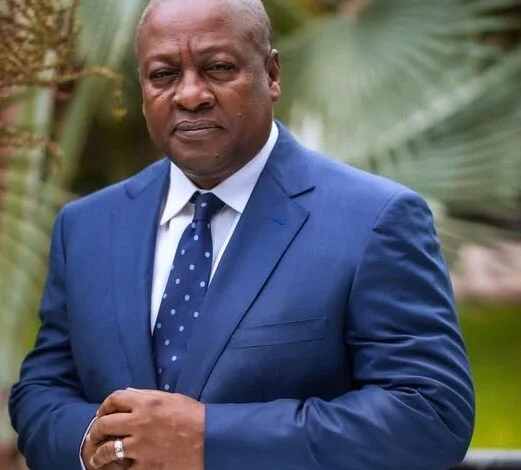Political Science Lecturer at the Kwame Nkrumah University of Science and Technology (KNUST), Dr. Kwasi Amakye Boateng, has expressed concern that the New Patriotic Party (NPP) is banking on the failure of President John Dramani Mahama in order to regain political advantage ahead of the 2028 general elections.
According to him, the current posture and rhetoric of the NPP leadership suggest that they are not prioritising national interest, but rather hoping that President Mahama’s administration does not succeed, particularly on the economic front.
“If President Mahama is able to significantly affect the economy – in terms of economic growth and also embark on significant social development, he will thwart their plans”
Dr. Kwasi Amakye Boateng, Political Science Lecturer at KNUST
He said democratic elections are shaped by economic outcomes more than any other consideration, adding that a successful presidency would translate into strong public support and a likely second-term win for the NDC in 2028.

The lecturer noted that the NPP’s internal discussions around positioning themselves “in the right direction” for the 2028 elections were premature and indicative of a party simply praying for the current government to stumble.
He further stated that this calculation appears to be behind the NPP’s renewed efforts to mobilise supporters after their crushing defeat in the 2024 general elections, especially in the Ashanti Region, where the party has traditionally enjoyed strong support.
However, he cautioned that such a strategy may backfire if President Mahama delivers on his key promises in that region. “And there are signs he’s going to do that,” he added.
“He came to Kumasi to announce several packages he has for the region. If he does go ahead to execute them, and definitely succeeds, Ghanaians will want to reward the NDC. Economic factors come first.
“If he goes ahead with Kejetia Market Phase 2 project, he would have succeeded in endearing himself and his party to the region more”
Dr. Kwasi Amakye Boateng, Political Science Lecturer at KNUST

Potential Political Upset
Dr. Amakye Boateng further highlighted a number of specific initiatives announced by President Mahama that could shift the political landscape.
He cited the president’s pledge to construct “a dual carriage highway between Kumasi and Accra,” as well as other social and economic packages unveiled during his recent ‘Thank You’ tour to the region.
The lecturer believes these development commitments have the potential to further influence voter behaviour in the region, especially if held in contrast with the unsatisfactory delivery of projects and promises by the erstwhile NPP administration.
He pointed to the NDC’s particularly improved electoral performance in 2024 in the Ashanti region as a sign of what is to come should President Mahama use the next three years to deliver on his mandate to the people.
According to him, these developments could form the foundation for a long-term political shift in the region, creating new opportunities for the NDC to build a viable traction in the heartland of their opponents moving forward.

In light of these projections, he spoke to the NPP’s hope that the current government’s failure would strongly position them for the 2028 elections, describing them as not just selfish but unlikely. “They will have difficulty achieving the desired outcome,” the lecturer added.
Looking ahead, Dr. Amakye Boateng predicted that if the President’s development plans materialise as promised, the NDC would be in a stronger position to consolidate support nationwide and possibly win the 2028 elections.
In essence, the lecturer stressed that economic growth, infrastructure development, and social impact will ultimately determine the outcome of the next election, rather than political propaganda or internal mobilisation.
He concluded that rather than wishing for failure, all political stakeholders should commit to national development and constructive engagement that benefits the ordinary Ghanaian.
READ MORE: Generation Inefficiencies Fuel Power Sector Debt Crisis – Dr. Ishmael Ackah



















